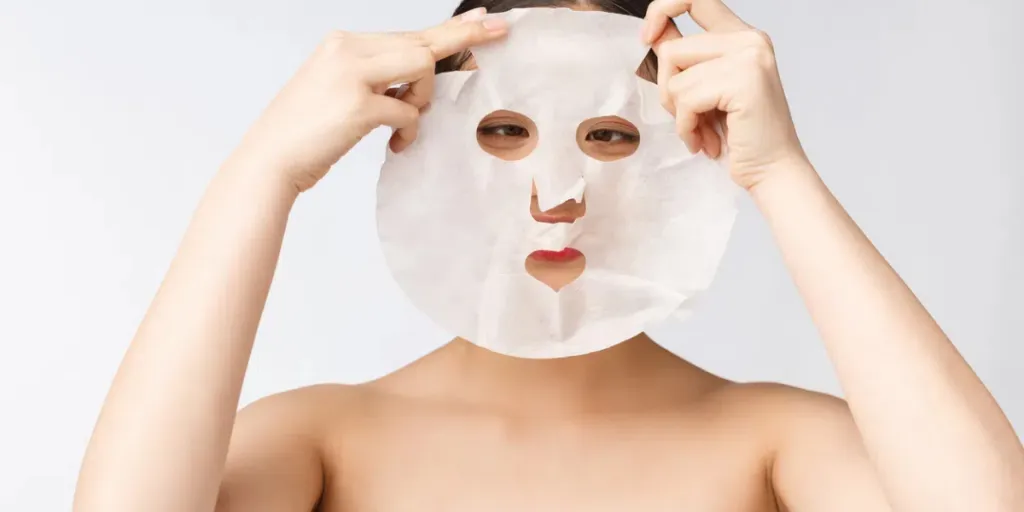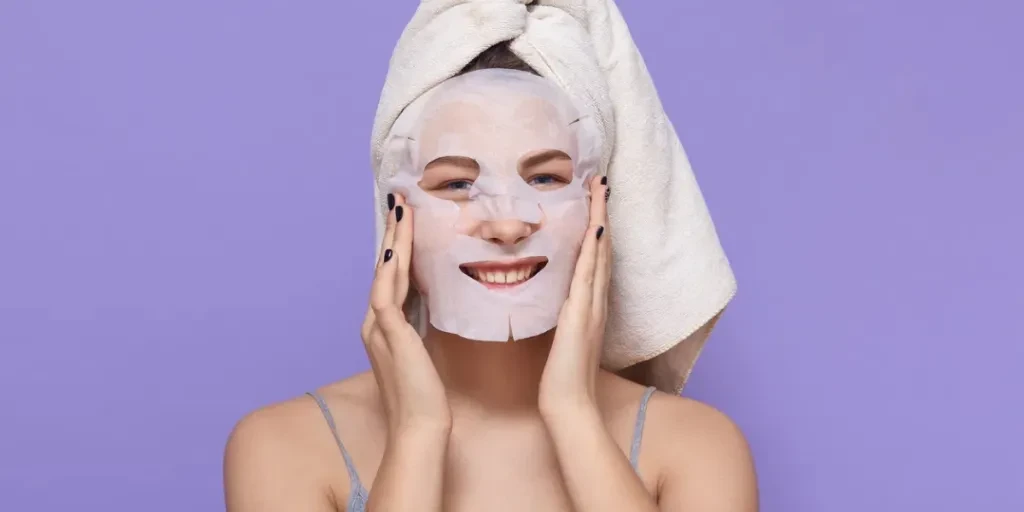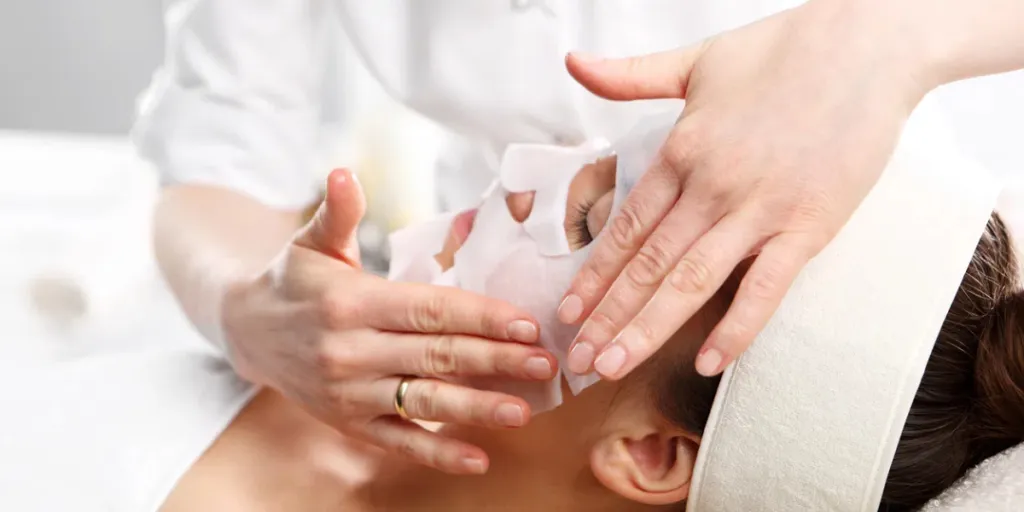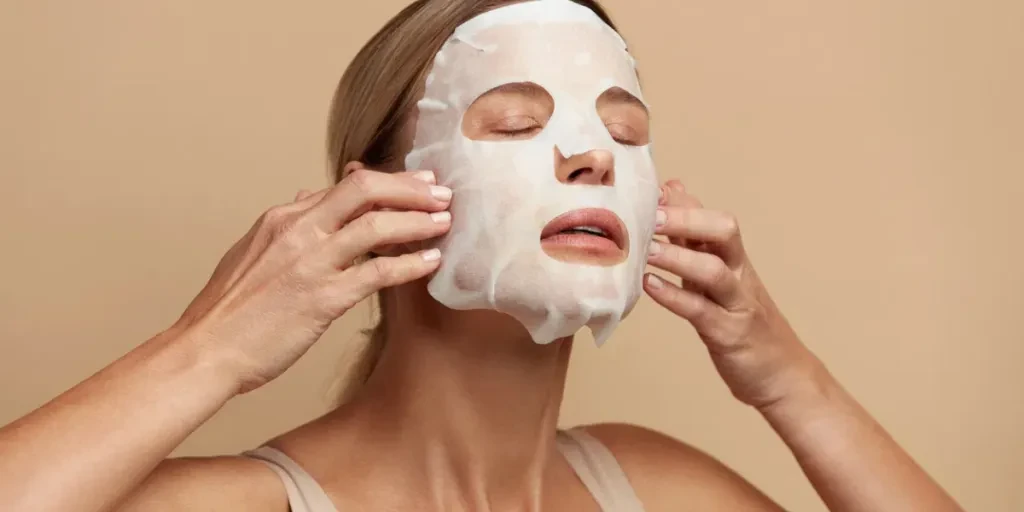In the ever-evolving world of skincare, face masks have emerged as a staple, offering a myriad of benefits from hydration to anti-aging. As we step into 2025, the face mask segment continues to thrive, driven by innovative formulations and a growing consumer base. This article delves into the trending face masks for 2025, exploring their market potential and the factors fueling their popularity.
Daftar Isi:
– Exploring the Rise of Face Masks in Skincare: Trends and Market Potential
– Popular Types of Face Masks: Pros, Cons, and Consumer Insights
– Mengatasi Masalah Konsumen: Solusi dan Inovasi
– New and Innovative Face Masks on the Market
– Key Factors to Consider When Sourcing Face Masks for Retail
– Wrapping Up: The Future of Face Masks in Skincare
Exploring the Rise of Face Masks in Skincare: Trends and Market Potential

What Makes Face Masks a Hot Topic in Skincare?
Face masks have become a cornerstone of skincare routines, thanks to their targeted benefits and ease of use. The global facial skincare market, which is projected to reach USD 142.11 billion by 2030, is witnessing a significant contribution from face masks. These products cater to various skin concerns, from hydration and brightening to anti-aging and detoxification. The versatility and effectiveness of face masks make them a hot topic in the skincare industry.
The demand for face masks is also fueled by the increasing awareness of skincare’s importance. Consumers are more informed about the benefits of maintaining healthy skin, leading to a surge in the adoption of skincare products. Additionally, the expanding purchasing power in emerging markets like China, India, and Brazil is contributing to the growth of the face mask segment.
Perbincangan di Media Sosial: Tagar dan Dukungan Influencer
Social media platforms have played a pivotal role in the rise of face masks. Hashtags like #SheetMask, #SelfCareSunday, and #GlowUp have garnered millions of posts, creating a buzz around these products. Influencers and celebrities frequently share their skincare routines, often featuring face masks, which drives consumer interest and trust.
Influencer endorsements have proven to be a powerful marketing tool. Brands collaborate with influencers to showcase their products, reaching a wider audience and boosting sales. This strategy has been particularly effective in the face mask segment, where visual content showcasing the product’s application and results can significantly influence purchasing decisions.
Aligning with Broader Beauty Trends: Natural Ingredients and Sustainability
The broader beauty trends of natural ingredients and sustainability are also shaping the face mask market. Consumers are increasingly seeking products with clean, natural ingredients that are gentle on the skin and environmentally friendly. Ingredients like hyaluronic acid, vitamin C, and aloe vera are popular choices for their hydrating and soothing properties.
Sustainability is another critical factor driving the face mask market. Brands are innovating with eco-friendly packaging and biodegradable materials to cater to the environmentally conscious consumer. For instance, sheet masks made from natural fibers like cotton and bamboo are gaining popularity. Additionally, some brands are introducing refillable packaging options to reduce waste.
The alignment of face masks with these broader beauty trends enhances their appeal and market potential. As consumers become more conscious of their choices, products that offer both efficacy and sustainability are likely to see continued growth.
In conclusion, the face mask segment in skincare is poised for significant growth in 2025. The combination of targeted benefits, social media influence, and alignment with broader beauty trends positions face masks as a key player in the skincare market. Business buyers, including retailers and wholesalers, should consider these factors when selecting products to meet the evolving demands of consumers.
Popular Types of Face Masks: Pros, Cons, and Consumer Insights

Masker Lembaran: Kenyamanan dan Efektivitas
Sheet masks have become a staple in the beauty and personal care industry due to their convenience and effectiveness. These masks are typically made from materials such as cotton, non-woven fabric, hydrogel, or bio-cellulose, each offering unique benefits. Cotton and non-woven masks are known for their affordability and ease of use, making them popular among a wide range of consumers. Hydrogel and bio-cellulose masks, on the other hand, provide superior adherence and hydration, often infused with high concentrations of active ingredients.
The primary advantage of sheet masks lies in their ability to deliver a concentrated dose of skincare ingredients directly to the skin. This makes them ideal for addressing specific concerns such as dryness, dullness, and fine lines. However, the single-use nature of sheet masks raises environmental concerns, prompting a shift towards biodegradable options. Brands like Sulwhasoo have introduced biodegradable fiber masks, aligning with the growing demand for sustainable beauty products.
Clay Masks: Deep Cleansing and Detoxifying Benefits
Clay masks are renowned for their deep cleansing and detoxifying properties. They are formulated with various types of clay, such as kaolin, bentonite, and French green clay, each offering distinct benefits. Kaolin clay is gentle and suitable for sensitive skin, while bentonite clay is highly absorbent, making it effective for oily and acne-prone skin. French green clay is rich in minerals and provides a revitalizing effect.
The primary benefit of clay masks is their ability to draw out impurities and excess oil from the skin, leaving it feeling clean and refreshed. This makes them a popular choice for consumers with oily or combination skin types. However, clay masks can be drying if used too frequently, so it is essential to balance their use with hydrating products. Brands like L’Oréal and Kiehl’s have developed clay masks that incorporate hydrating ingredients to mitigate this issue, ensuring a balanced skincare routine.
Gel Masks: Hydration and Soothing Properties
Gel masks are favored for their hydrating and soothing properties, making them ideal for dry and sensitive skin types. These masks are typically formulated with ingredients like hyaluronic acid, aloe vera, and cucumber extract, which provide intense hydration and calming effects. The gel texture offers a cooling sensation, making these masks particularly beneficial for reducing redness and irritation.
One of the key advantages of gel masks is their versatility. They can be used as a quick hydration boost or left on overnight for more intensive treatment. Brands like Clinique and Peter Thomas Roth have developed gel masks that cater to various skin concerns, from dehydration to anti-aging. However, it is crucial to ensure that these masks are free from potential irritants such as artificial fragrances and alcohol, which can exacerbate skin sensitivity.
Mengatasi Masalah Konsumen: Solusi dan Inovasi

Tackling Skin Sensitivity: Gentle and Hypoallergenic Options
Skin sensitivity is a common concern among consumers, necessitating the development of gentle and hypoallergenic face masks. These masks are formulated with soothing ingredients like chamomile, calendula, and oat extract, which help to calm irritated skin. Additionally, they are free from common allergens such as parabens, sulfates, and synthetic fragrances.
Brands like Omy Laboratoires have introduced hypoallergenic masks that cater to sensitive skin, utilizing natural and vegan ingredients. These masks are dermatologically tested to ensure they do not cause irritation, making them suitable for even the most delicate skin types. The use of eco-friendly packaging further enhances their appeal to environmentally conscious consumers.
Combatting Acne: Effective Ingredients and Formulations
Acne is a prevalent skin concern that requires targeted treatment. Face masks designed to combat acne often contain ingredients like salicylic acid, tea tree oil, and niacinamide, which help to reduce inflammation and prevent breakouts. These masks work by unclogging pores, controlling excess oil production, and providing antibacterial benefits.
Brands like Neutrogena and The Body Shop have developed acne-fighting masks that incorporate these active ingredients. Additionally, the inclusion of soothing agents like aloe vera and green tea extract helps to minimize irritation and promote healing. It is essential for business buyers to ensure that these masks are non-comedogenic and suitable for acne-prone skin to meet consumer needs effectively.
Anti-Aging Solutions: Innovative Ingredients and Technologies
The demand for anti-aging skincare products continues to grow, driving innovation in face mask formulations. Anti-aging masks often feature ingredients like retinol, peptides, and antioxidants, which help to reduce the appearance of fine lines and wrinkles. These masks work by stimulating collagen production, improving skin elasticity, and protecting against environmental damage.
Brands like Farmacy Beauty and Estée Lauder have introduced anti-aging masks that leverage advanced technologies such as microencapsulation and time-release delivery systems. These innovations ensure that active ingredients are delivered effectively and continuously to the skin, enhancing their efficacy. Business buyers should prioritize sourcing masks that offer proven anti-aging benefits and cater to the growing consumer demand for youthful, radiant skin.
New and Innovative Face Masks on the Market

Multi-Masking: Customizable Skincare Solutions
Multi-masking is a trend that involves using different masks on various areas of the face to address specific skin concerns simultaneously. This approach allows consumers to customize their skincare routine based on their unique needs. For example, a clay mask can be applied to the T-zone to control oil, while a hydrating gel mask can be used on the cheeks to provide moisture.
Brands like Glamglow and Origins have embraced this trend by offering mask sets that cater to multi-masking. These sets typically include masks with different formulations, allowing consumers to mix and match based on their skin’s requirements. Business buyers should consider offering multi-masking sets to provide a comprehensive skincare solution that appeals to consumers seeking personalized treatments.
Smart Masks: Technology-Enhanced Skincare
The integration of technology into skincare has led to the development of smart masks, which offer enhanced benefits through the use of advanced devices. These masks often incorporate LED light therapy, microcurrents, and other technologies to boost the efficacy of skincare ingredients. LED masks, for example, use different wavelengths of light to target specific skin concerns such as acne, aging, and hyperpigmentation.
Brands like FOREO and Dr. Dennis Gross have introduced smart masks that combine traditional skincare with cutting-edge technology. These masks provide a professional-grade treatment in the comfort of one’s home, making them a popular choice among tech-savvy consumers. Business buyers should explore the potential of smart masks to offer innovative and effective skincare solutions that stand out in the market.
Eco-Friendly Masks: Sustainable and Biodegradable Options
Sustainability is a significant trend in the beauty industry, driving the demand for eco-friendly face masks. These masks are made from biodegradable materials and packaged in recyclable or compostable packaging. Ingredients are often sourced sustainably, and formulations are free from harmful chemicals that can damage the environment.
Brands like ESW Beauty and Sulwhasoo have developed eco-friendly masks that cater to environmentally conscious consumers. These masks not only provide effective skincare benefits but also align with the values of sustainability and ethical consumption. Business buyers should prioritize sourcing eco-friendly masks to meet the growing demand for sustainable beauty products and contribute to environmental conservation.
Key Factors to Consider When Sourcing Face Masks for Retail

Ingredient Transparency: Importance of Clean and Safe Ingredients
Ingredient transparency is crucial when sourcing face masks for retail. Consumers are increasingly aware of the ingredients in their skincare products and prefer formulations that are clean and safe. This means avoiding harmful chemicals such as parabens, sulfates, and synthetic fragrances, and opting for natural and organic ingredients instead.
Brands like Fresh and Tata Harper emphasize ingredient transparency by providing detailed information about their formulations. Business buyers should ensure that the face masks they source are free from potentially harmful ingredients and clearly communicate this information to consumers. This builds trust and enhances the product’s appeal to health-conscious buyers.
Pengemasan dan Penyajian: Menarik Perhatian Konsumen
Packaging and presentation play a significant role in attracting consumer attention and driving sales. Eye-catching designs, vibrant colors, and innovative packaging solutions can make a product stand out on the shelves. Additionally, packaging should be functional, ensuring that the product remains fresh and easy to use.
Brands like Sephora and Glamglow have mastered the art of packaging, creating visually appealing products that draw consumers in. Business buyers should consider the packaging design when sourcing face masks, ensuring that it aligns with current trends and consumer preferences. Sustainable packaging options are also highly valued, reflecting a commitment to environmental responsibility.
Supplier Reliability: Ensuring Quality and Consistency
Supplier reliability is a critical factor in ensuring the quality and consistency of face masks. Business buyers should partner with reputable suppliers who adhere to stringent quality control standards and regulatory requirements. This ensures that the products meet safety standards and deliver consistent results to consumers.
Brands like L’Oréal and Shiseido have established strong relationships with reliable suppliers, ensuring the quality and efficacy of their products. Business buyers should conduct thorough due diligence when selecting suppliers, considering factors such as production capabilities, certifications, and track record. This helps to mitigate risks and maintain a high standard of product quality.
Wrapping Up: The Future of Face Masks in Skincare

The face mask market continues to evolve, driven by consumer demand for innovative, effective, and sustainable skincare solutions. From sheet masks to smart masks, the variety of options available caters to diverse skin concerns and preferences. Business buyers must stay attuned to emerging trends and prioritize quality, transparency, and sustainability when sourcing face masks for retail. By doing so, they can meet consumer expectations and contribute to the growth and success of the beauty and personal care industry.




